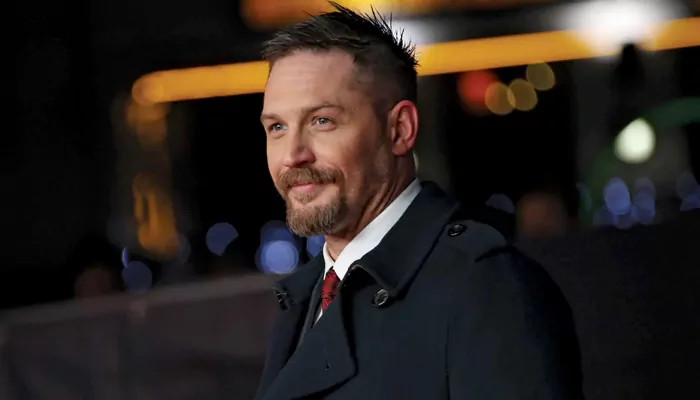
On his birthday, a look at how Tom Hardy reshaped the way we see darkness on screen.
Some actors chase the spotlight. Others, like Tom Hardy, quietly transform it. Born on September 15, 1977, Hardy has carved out a place in cinema not through excess, but through depth. His gift lies in making the most unlikely characters resonate with truth. Whether he plays a villain, a hero, or something in between, Hardy reminds us that every role has a human core waiting to be revealed. His birthday offers a moment to pause and reflect on the art of an actor who brings the shadows to life.

Hardy’s journey began in London, where his parents nurtured his creative spirit. Yet his early years were far from smooth. He faced personal struggles, battles with addiction, and moments of restlessness. It was acting that became his anchor. At the Drama Centre London, he trained with remarkable intensity, shaping himself into a performer who could hold a screen with silence as much as with dialogue. Those foundations continue to echo in every performance.

His first significant screen moments came with the release of Band of Brothers and Black Hawk Down in 2001. Then, a year later, he entered the world of Star Trek: Nemesis, playing a villain who already hinted at his ability to find tenderness inside menace. These early roles revealed a young actor unafraid to explore the darker corners of human behavior. They also set him on a path toward the complex roles that would later define him.

Few actors transform as fully as Hardy does. In Bronson, he was raw power and unsettling unpredictability. In Inception, he brought wit and charm to an otherwise cerebral tale. His double role as both Kray twins in Legend remains a masterclass in duality—two performances so distinct they felt like separate people inhabiting the same screen. Each time, Hardy dissolves into his character until you forget the man behind the mask.

Hardy’s villains are never just villains. His Bane in The Dark Knight Rises was terrifying yet carried an undercurrent of pain and purpose. In The Revenant, his portrayal of John Fitzgerald earned him an Academy Award nomination, precisely because he refused to make the character one-dimensional. He gives even the darkest roles a pulse, a flicker of humanity, reminding us that evil is often born out of wounds rather than pure malice.
While he has become famous for complex antagonists, Hardy is equally compelling in more heroic roles. As Max Rockatansky in Mad Max: Fury Road, he created a haunted survivor defined less by words than by presence. His turn in Christopher Nolan’s Dunkirk gave us a fighter pilot whose bravery was expressed in small, steady gestures. In the Venom films, Hardy embraced chaos with humor and warmth, reshaping the superhero genre with his own eccentric rhythm.
Off-screen, Hardy carries a quiet dignity. He has spoken candidly about overcoming addiction, a battle that deepens the honesty of his performances. He is a husband, a father, and a collaborator—co-creating the series Taboo with his father, Chips Hardy. His knighthood as a CBE in 2018 acknowledged not just his talent but his enduring contribution to British drama.
Tom Hardy’s career is a reminder that cinema is not only about spectacle but also about empathy. He has built a legacy by showing us that villains can bleed, heroes can falter, and every character holds a hidden truth. On his birthday, we celebrate not just his films but the way he has changed the way we see the people who inhabit them.
Hardy reminds us that great acting is not about perfection—it’s about presence, vulnerability, and the courage to reveal what most would hide.